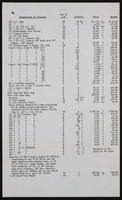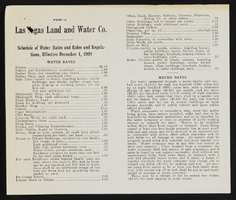Search the Special Collections and Archives Portal
Search Results
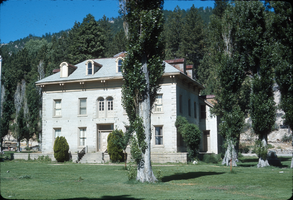
Slide of the Bowers Mansion, Washoe Valley, Nevada, circa 1970s
Date
Archival Collection
Description
Image
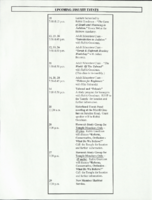
Minutes from Temple Beth Sholom Board of Directors meetings, 1998
Date
Archival Collection
Description
Meeting minutes include reports from committees of the board, correspondence, and balance sheets.
Text
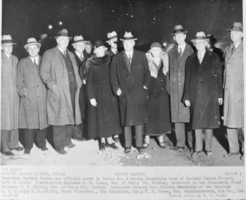
Film transparency of Herbert Hoover and his party touring the Boulder Canyon Project, November 12, 1932
Date
Archival Collection
Description
Image
Leon Carter, Sr. Photographs
Identifier
Abstract
This collection has been removed from the University of Nevada, Las Vegas Libraries Special Collections and Archives' holdings by request of the donor. The collection was returned to the donor. Please contact special.collections@unlv.edu for further information.
The Leon Carter, Sr. Photographs (approximately 1948-2019) primarily contain photographic prints documenting Leon Carter, Sr.'s life living in Las Vegas, Nevada. Included are photographs of Carter, his brother John L. Carter, members of the Carter family, and snapshots from the Helldorado Days parade in the mid-1960s. The collection includes a photograph of Carter as a table dealer, a facsimile photograph of Carter when he played baseball in Canada in the early 1950s, and his yearbook portrait. Materials also include a brochure from Carter's political campaign running for County Commissioner in 1972, and a 1989 certificate of appreciation to Carter from the Las Vegas Breakfasters Lions Club.
Archival Collection
Fred Houghton Papers
Identifier
Abstract
The Fred Houghton Papers (1909-1998) consist of Houghton’s legal and personal files on his Blue Chip Ranch property in Las Vegas, Nevada. The materials include legal cases, maps, reports, and correspondence concerning water access on the property, and his work with the Las Vegas Well Users Association, which primarily contains correspondence in conjunction with Las Vegas's water politics. The collection also contains court cases during the 1930s when Houghton worked as a lawyer in Chicago, Illinois, as well as legal files for his time as a public defender for the State of California. The personal files in the collection primarily consist of correspondence, banking records, diaries, and notebooks.
Archival Collection
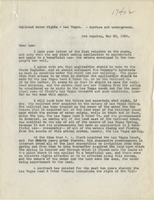
Letter from F. R. McNamee (Los Angeles) to Leo [McNamee], May 22, 1924
Date
Archival Collection
Description
McNamee states that although the Union Pacific Railroad owns the land that the springs are on and all the land it historically watered, to further protect their water right they should apply for the right to appropriate the water.
Text
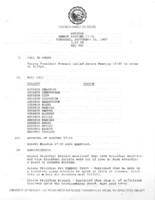
Meeting minutes for Consolidated Student Senate University of Nevada, Las Vegas, September 10, 1987
Date
Archival Collection
Description
Text

